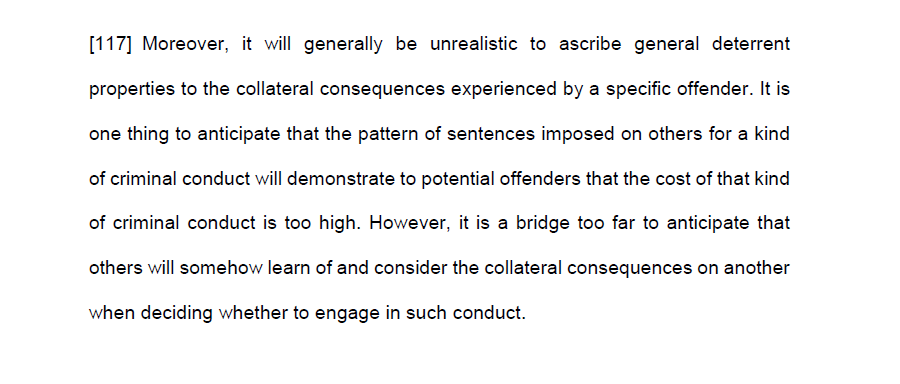R. v. Joseph, 2020 ONCA 733: Lots going on here, including interpreting "procure" and "habour" and striking down two mandatory minimum sentences. But check out the Court's comments on the relationship between collateral consequences (here, publicity) and general deterrence. 1/6
Para. 120: using collateral consequences such as publicity to offset the need for a deterrent sentence is an error in principle. These factors operate differently: Collateral consequences = sentence's impact on the individual; general deterrence = sentence's impact on others. 2/6
The Court compared the deterrent impact of sentences imposed vs. the deterrent impact of collateral consequences: (3/6)
Sure, the public may not learn about some collateral consequences (like immigration or employment consequences). But publicity is, well, public. And there are reasons to question the deterrent impact of particular sanctions imposed too. I think the Court is alluding to this. 4/6
My (admittedly very dated) understanding of the general deterrence literature is that more severe sentences do not deter crime but the perception that you will be caught and punished does. So maybe publicity is the best deterrent?! 5/6
In the end, I'm not sure that publicity is a "substitute" for general deterrence, given the primacy of general deterrence in the case law. But do think that viewing publicity through the general deterrence lens highlights the problems with general deterrence itself. 6/6

 Read on Twitter
Read on Twitter


